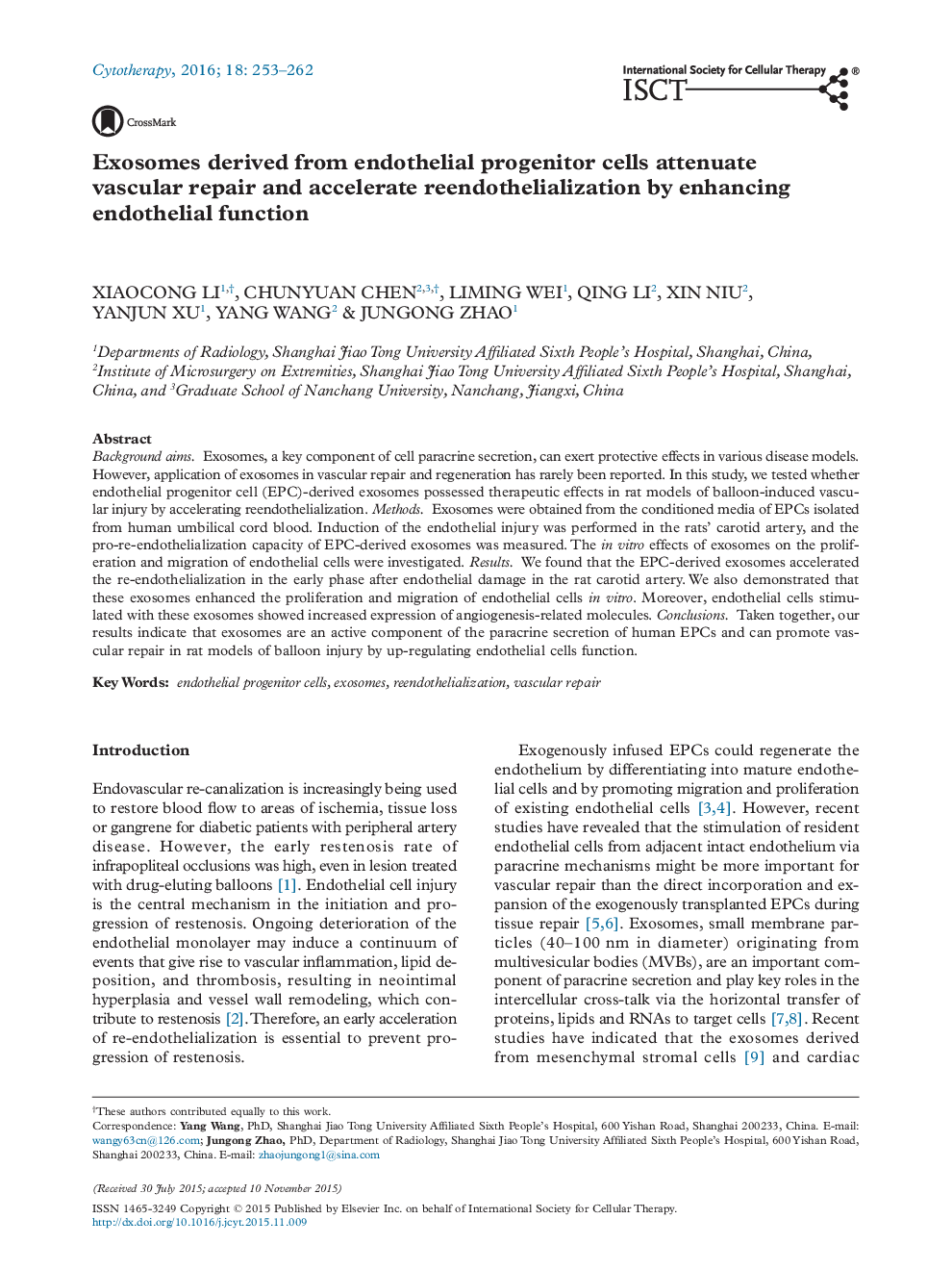| کد مقاله | کد نشریه | سال انتشار | مقاله انگلیسی | نسخه تمام متن |
|---|---|---|---|---|
| 2171154 | 1093468 | 2016 | 10 صفحه PDF | دانلود رایگان |
Background aimsExosomes, a key component of cell paracrine secretion, can exert protective effects in various disease models. However, application of exosomes in vascular repair and regeneration has rarely been reported. In this study, we tested whether endothelial progenitor cell (EPC)-derived exosomes possessed therapeutic effects in rat models of balloon-induced vascular injury by accelerating reendothelialization.MethodsExosomes were obtained from the conditioned media of EPCs isolated from human umbilical cord blood. Induction of the endothelial injury was performed in the rats' carotid artery, and the pro-re-endothelialization capacity of EPC-derived exosomes was measured. The in vitro effects of exosomes on the proliferation and migration of endothelial cells were investigated.ResultsWe found that the EPC-derived exosomes accelerated the re-endothelialization in the early phase after endothelial damage in the rat carotid artery. We also demonstrated that these exosomes enhanced the proliferation and migration of endothelial cells in vitro. Moreover, endothelial cells stimulated with these exosomes showed increased expression of angiogenesis-related molecules.ConclusionsTaken together, our results indicate that exosomes are an active component of the paracrine secretion of human EPCs and can promote vascular repair in rat models of balloon injury by up-regulating endothelial cells function.
Journal: Cytotherapy - Volume 18, Issue 2, February 2016, Pages 253–262
